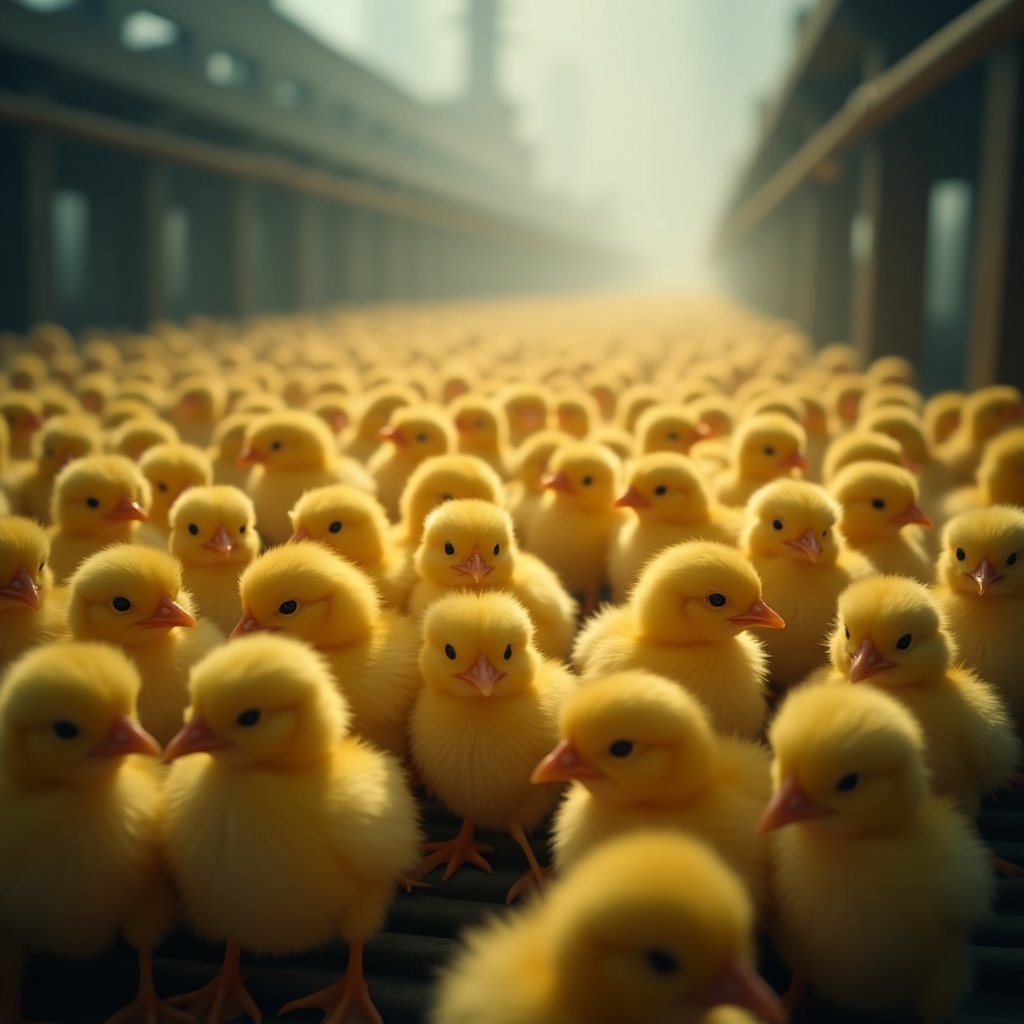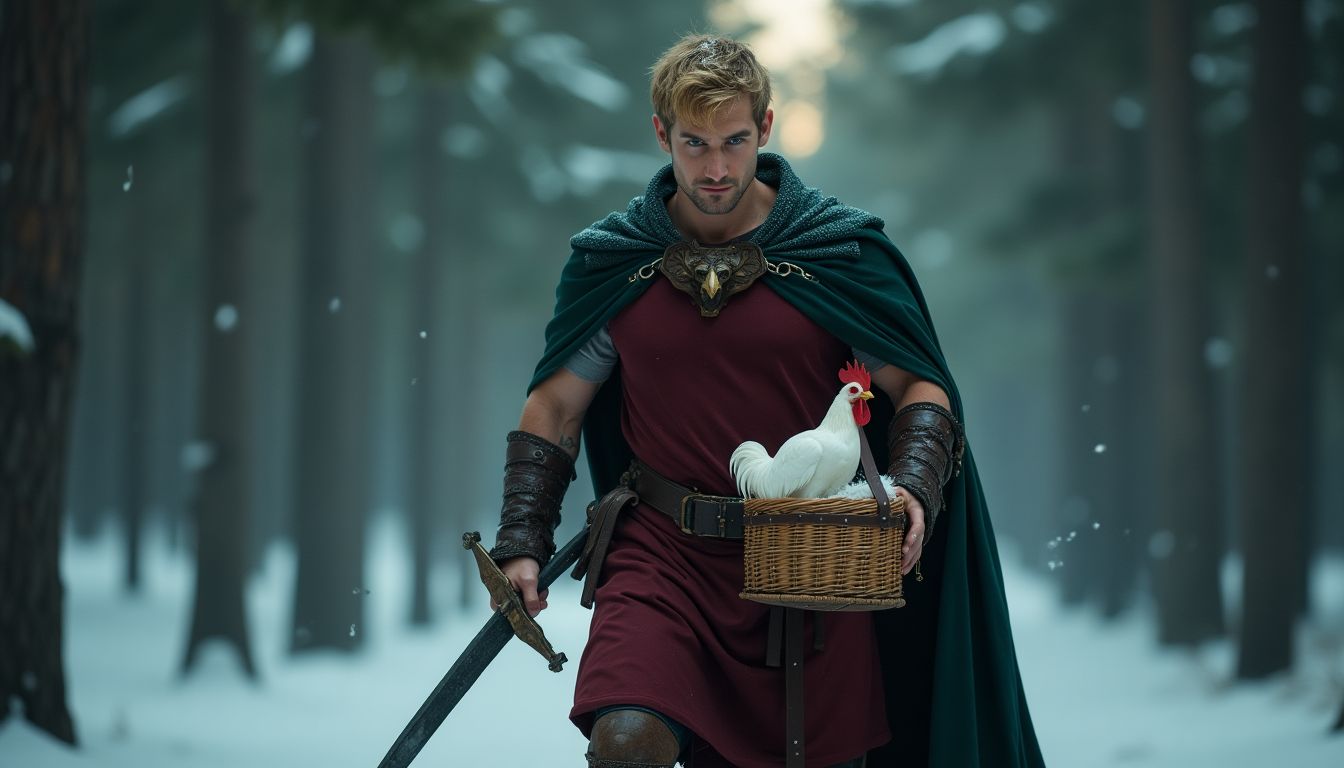It was a seemingly big win for animal rights when Germany banned the culling of male chicks. A new dawn, they said, would break where no fluffy feathered life would be squandered just because it couldn't lay an egg. The practice of chick shredding haunted Germany’s poultry industry until 2022. With a legal wave of a former agriculture minister, Julia Klöckner, this practice was outlawed, wrapping itself in a moral banner: "No male chicks culled." However, has this loftily noble decree ushered in a new era of humane treatment, or merely painted lipstick on a deeply flawed system?
Before we delve further, let’s pay homage to the original source. This article draws from a compelling documentary by DW Documentary, which fearlessly unravelled the conundrum of Germany's poultry practices. So, thank you, DW, for shedding light on the plight of these minute feathery creatures.
Chick Politics: Where Reality Meets PR
In a world where appearances sometimes weigh more than actions, the avian dilemma reveals itself. The german legislated answer to an outcry for compassion—banning the culling of male chicks—sounds heaven-sent, but peels off layers of complexity as we discover its inefficacy. The unfortunate truth is that the law hasn't improved life for chicks; instead, it's merely changed the journey from a brutal local cull to an international saga wrapped in false promises. Now, our yellow peeping friends are thrust into the chaotic world of egg production—a process designed to serve human convenience rather than avian welfare.
The Journey: From Cluck to Clock-out
From the hen’s first worried cluck in Germany to the final clatter somewhere in Poland, these chickens have neither passports nor popularity (anywhere outside your plate, that is). We've entered the world of fancy labels, where egg cartons emblazon the words “brother roosters” rearing. An apparent promise that every rooster lives a life of cloistered luxury lies to unwitting consumers. If only these cartons were speaking the truth instead of crafting marketing mirage.
Germany may love its eggs with a fiery passion, consuming roughly 20 billion eggs—a whopping 230 per citizen—per year. Yet, for all this demand, the egg industry remains insistent on a specific breed, skillfully engineered for massive output. Meanwhile, the fate of their brother roosters is distressingly brushed under the eggshell lattice.
The Medizin-Sherlock: Hatching a Mystery
Our journey with investigative knights Alexa Ramthum and Verena Sieben traverses continents in pursuit of the chicks left unshredded, probing the reality of their existence in a befuddled law's wake. These chicks, initially caught up in a hatchery at the heart of North Rhine-Westphalia, embark on a curious odyssey.
Hatcheries Hatching Concerns
At the brink of egg-sincipity, we find ourselves face to face with Burkhard Brinkschulte's operation, with incubators bubbling with potential life. Here, the gritty dilemma presents itself—hen chicks are destined for profit-driven elevations, while their male counterparts await anonymity. As Brinkschulte aptly positions it, the biological dilemma remains stark: their roosters, devoid of desirability, attract no customers with their meager meat.
Two fateful paths emerge under the new German law: raising brother roosters for insipid meat profits or using a breed that bets on both eggs and flesh but not quite winning at either. And then, there's option three—a surprise twist—sort these future roosters out before they can even peep.
The Lost Brothers: Wings Over Borders
From mere eggs to foreign settings, our brother roosters are hustled across Europe. Our intrepid duo, pushing beyond Germany’s borders, alights in Poland, sniffing for clues. What emerges is a picture shrouded in secrecy, yet whispers of abattoirs and mystery broking indicate a less than gallant treatment of these male chickens. Poland unveils a covert economy where brother roosters are essentially livestock on the lam—destined for satisfaction in a market teetering between demand and dismissiveness.
As Verena and Alexa persistently challenge the Polish silence, a door opens on a farm seemingly housing an unsung retinue of disinterested roosters and a lead towards slaughterhouses tailored for lighter birds. Perhaps unsurprisingly, many are then packed onto vessels headed for distant shores—Africa.
A Transhemispheric Tale: The Circle of Life
In Ghana, the brother rooster's narrative takes on complex hues. Here the fraught trade intertwines with a society eager for affordable poultry but at a cost of local self-sufficiency. As imported meats flow more freely into Ghana than poultry from its neighborhoods, poultry farming hangs precariously in the balance, jeopardized by price discrepancies. Domestic farmers, like Christiana Yeboah, struggle, laid low by cheaper Rotterdamian coopmates.
The Duel: Local vs. Imported
Against this backdrop of struggling local farms, a two-sided infrastructure exposed by DW's documentary resounds with wary quills. In one corner, lays Ghana’s chickens, veterans of prime feather lineage, whereas on the opposite end, a hatchery-backed influx commands attention—not all welcomed. In the game of market shares, imported birds come packed with promises of value, nutrition, and occasionally a tale spanning oceans.
Egg Carton Contradictions
Here lies a remarkable disconnect. The egg cartons in Germany suggest a visage of ethically stewarded poultry—bright beacons of non-culled brother roosters. Yet, the route these chicks truly travel beckons a deeper, untouched narrative, where the promise of chick welfare dissolves across a convoluted map.
Films like Chicken Run had us dreaming of plucky escapes, but in reality, neither green pastures nor triumphant machinations await these roosters. Instead, they may wind up entreated by ghastly conditions, hidden from the sight of those who might fret over their welfare. Even our lap chickens pecking around organic farms, under the current framework, cannot escape the patchwork blanket the law has unwittingly laid.
Hope for Feathers of the Future
In-ovo sexing—envisioned as the technological silver bullet—stands poised to rescue future generations of unhatched roosters before their problems plunge them into the fray. At OWL University of Applied Sciences (where science cracks breakfast eggs), researchers like Jens Staufenbiel investigate innovations that could revolutionize the poultry industry's practices.
These developments could mean a brave new world where chicks don't hatch simply to confront a flawed system. But without significant reach, intent, and speed, they also indicate the technical tangle hasn't yet unraveled its knot.
A Brooding Epilogue
Ultimately, while Germany's chick culling law sketched a leap toward righteousness, it simply directed the wings of our avian companions across unseen corridors. The reality fails the grand narrative; chirps and peeps persist beneath layers both traveled and touted aloud. Each carton turned supermarket sell echoes "no male chicks culled"; behind the rooster ranks rhapsodic, a cautionary map unfolds.
In contemplating this topic, let us collectively ponder: Are we holding the right end of the stick when it comes to animal welfare in food production?
Can we continue supporting systems that lull us with glossy declarations but hide uncomfortable truths? And how can we ensure that innovation helps us inch closer to not only what sounds good but also what's genuinely better? Ready to be a proactive force in articulating change in these discussions? Join us at iNthacity—the "Shining City on the Web"—and lend your voice to the unfolding discourse.
Engage often, through comments and sharing, exploring how we may traverse these egg-centric tales with empathy and informed choice.
Wait! There's more...check out our fascinating short story that continues the journey: The Rooster's Shadow
Disclaimer: This article may contain affiliate links. If you click on these links and make a purchase, we may receive a commission at no additional cost to you. Our recommendations and reviews are always independent and objective, aiming to provide you with the best information and resources.
Get Exclusive Stories, Photos, Art & Offers - Subscribe Today!


























1 comment